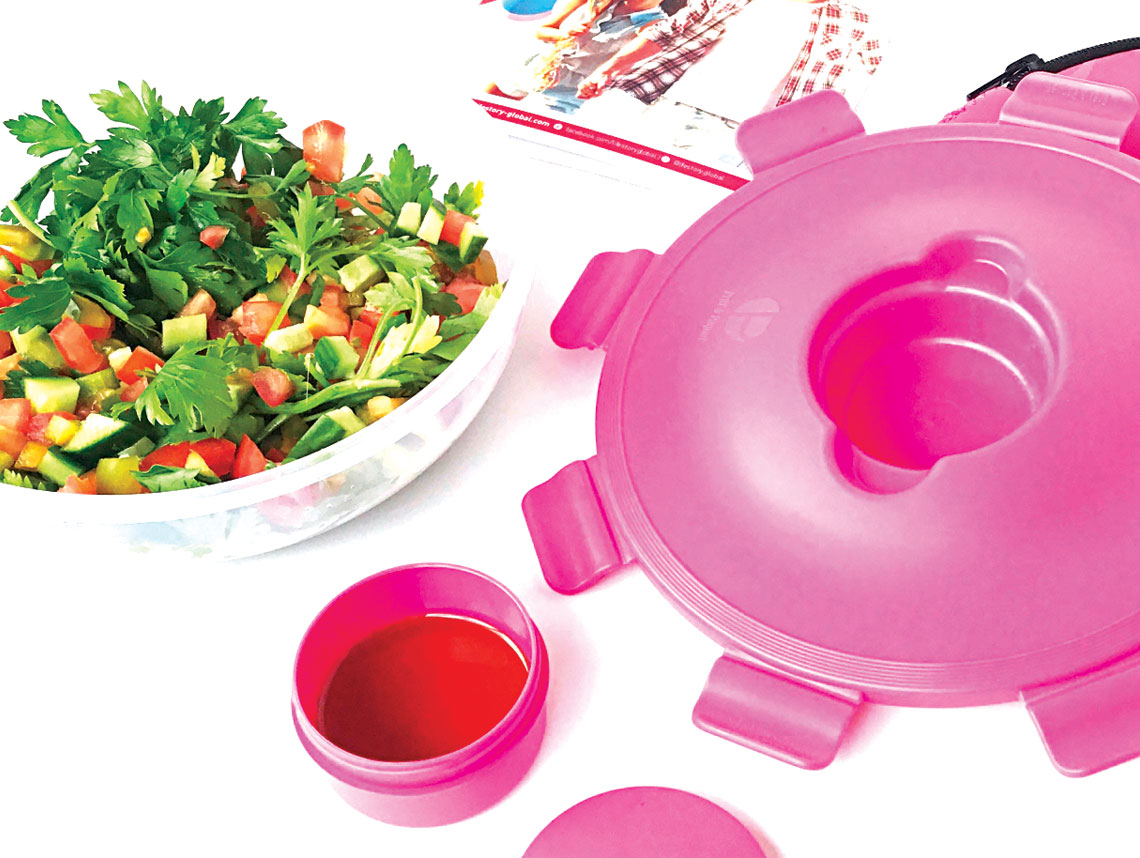
Whoever said little guys can’t win clearly does not know about Israel’s Bram Industries.
One of Walmart’s smallest suppliers, the 200-employee company based in the working-class southern city of Sderot also peddles its Life Story brand plastic tableware, housewares and storage products in American and European mega chains such as Target; TJ Maxx; Amazon; Bed, Bath & Beyond; HomeGoods; Home Depot and The Container Store, plus stores in Panama and Mexico.
Bram was on Fast Company’s list of the 10 most innovative Israeli companies for 2016 for “bringing sustainability to the plastics market — including a fully biodegradable shopping bag” and disposable cutlery made from cornstarch.
“Companies like Rubbermaid are like 100 times the size of our company and yet we have the same customers they have. It’s because we bring something different, from design to management. We have new technologies to do things faster and cheaper and more efficiently. So the big buyers agree to meet us and accept us as a supplier,” said President Eli Bramli.
His father, Haim, founded the business in 1981 and still works on the factory floor at 81 years old.
“He knows how to fix everything; he’s an expert in the plastics industry. I come from the commercial and finance side,” Eli Bramli said.
In 2016, Bram Industries opened a $3 million factory and distribution center in Savannah, Ga., in addition to existing manufacturing facilities in Israel and France.
Publicly traded on the Tel Aviv Stock Exchange since 2005, Bram Industries’ Life Story division makes about 100 products and is growing fast. The Hai Plastic division makes industrial plastic packaging solutions primarily for the local food industry and takeout market.
“Our main focus is innovation. Our motto is to make a product with nice design at a comfortable price,” Bramli said.
The vast majority of its products are not biodegradable — yet — because the raw materials are more expensive and therefore the finished product is too costly for the average big-box store customer. Bramli believes that “the future is more biodegradable and the costs will go down.”
Meanwhile, the company strives to be ecologically responsible by designing injection-molded plastic items meant to take the place of disposables and using natural materials when feasible.
One popular item that accomplishes both of these goals is the reusable Corky Cup, insulated with a coating of real cork — which also keeps the heat inside, away from the person’s hands — and featuring a screw-on, spill-proof lid. Launched at the end of 2015, Corky Cup sells for $4.99 in Walmart and is one of Life Story’s top products.
“Most cups for coffee today are made from steel or double-walled plastic,” Bramli said. “One Israeli guy brought us an idea of putting plastic on cork, but we saw it wasn’t possible for a disposable product because cork is expensive. So we made a non-disposable coffee cup that you can take to Starbucks and refill. It’s a similar concept to SodaStream,” the Israeli-made home appliances for making carbonated drinks in reusable bottles.
“It took a long time to develop the process to integrate plastic with cork,” Bramli continued. “We had to build a special robot to put it together.
“Another problem is that when you inject the materials together, the temperature is very high and the cork could melt. We worked with a company in Caesarea to solve that problem and it took 18 months.”
One other example is the Pret-a-Paquet line of compartmentalized lunch, salad and snack kits, sold at The Container Store. They are freezer- and microwave-safe, BPA-free and secured with leak-proof snap lids. Some are enclosed in a colorful insulated zippered pouch. Inspired by suggestions of office workers at Bram’s Sderot headquarters, the kits prevent a daily mountain of plastic-bag-and-paper-sack trash.
“Eighty percent of our products are designed in-house. As we’ve become bigger, we are starting to work with outside design companies in Israel and in Italy,” Bramli said.
“Our next step will be opening a manufacturing and distribution facility on the West Coast of the United States in the next two or three years, since we work with all the chains nationwide.”






















 More news and opinions than at a Shabbat dinner, right in your inbox.
More news and opinions than at a Shabbat dinner, right in your inbox.